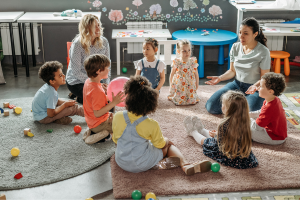Social skills
Social skills
Occupational Therapy for Social Skills
Occupational Therapy (OT) plays a crucial role in enhancing social skills, promoting meaningful interactions, and fostering overall well-being. Social skills are essential for effective communication, building relationships, and navigating various social contexts. Occupational therapists specialize in helping individuals develop, refine, and master these skills, contributing to a more fulfilling and successful life.
Understanding Social Skills
Social skills encompass a broad range of abilities, including:
1. Communication Skills: Verbal and non-verbal communication, active listening, and expressing oneself clearly.
2. Interpersonal Skills: Building and maintaining relationships, empathy, cooperation, and conflict resolution.
3. Self-Regulation: Managing emotions, understanding social cues, and adapting behavior to different situations.
Occupational Therapy Approach
Assessment
Occupational therapists begin by conducting a comprehensive assessment to understand an individual’s strengths, challenges, and specific social skill deficits. This may involve interviews, observations, and standardized assessments.
Goal Setting
Based on the assessment, therapists collaborate with clients to establish personalized goals. These goals may target specific social skills, communication strategies, or emotional regulation techniques.
Intervention Strategies
Occupational therapy interventions for social skills development may include:
1. Role-playing and Simulations: Engaging in scenarios that mimic real-life social situations to practice and refine appropriate behaviors.
2. Social Stories: Creating narratives that help individuals understand social expectations and appropriate responses in various situations.
3. Group Therapy: Participating in group activities to foster social interaction, communication, and teamwork.
4. Cognitive-Behavioral Strategies: Teaching strategies to recognize and modify thoughts and behaviors that impact social interactions.
Collaborative Approach
Occupational therapists often work collaboratively with other professionals, such as speech therapists, psychologists, and educators, to provide a holistic and integrated approach to social skills development.
Populations Benefiting from OT for Social Skills
Occupational therapy for social skills is beneficial for various populations, including:
1. Children and Adolescents: Addressing developmental delays or challenges in social interaction and communication.
2. Autism Spectrum Disorder (ASD): Supporting individuals with ASD in developing social skills and navigating social complexities.
3. Adults: Assisting individuals with social challenges related to mental health conditions, neurological disorders, or life transitions.
Benefits of Occupational Therapy for Social Skills
1. *Improved Communication: Enhancing verbal and non-verbal communication skills for more effective expression and understanding.
2. Enhanced Interpersonal Relationships: Building and maintaining positive relationships with peers, family, and the community.
3. Increased Confidence: Developing social competence leads to increased self-esteem and confidence in social interactions.
4. Successful Participation in Daily Life: Mastering social skills contributes to successful engagement in school, work, and community activities.
Conclusion
Occupational therapy for social skills is a dynamic and personalized approach to empower individuals in building meaningful connections and navigating social landscapes successfully. Through assessments, goal-setting, and evidence-based interventions, occupational therapists play a crucial role in enhancing social skills across various age groups and populations.
For more information or to schedule an occupational therapy session focused on social skills development, please 11, Church Rd, Shanti Kunj Main, Sector D, Vasant Kunj, New Delhi – India

Book an Appointment
Physiotherapy: Your Path to Pain Relief
Physiotherapists are movement experts who can help manage and reduce pain. Through manual therapy, exercise programs, and education, they can improve your mobility and function, empowering you to live an active, pain-free life.
